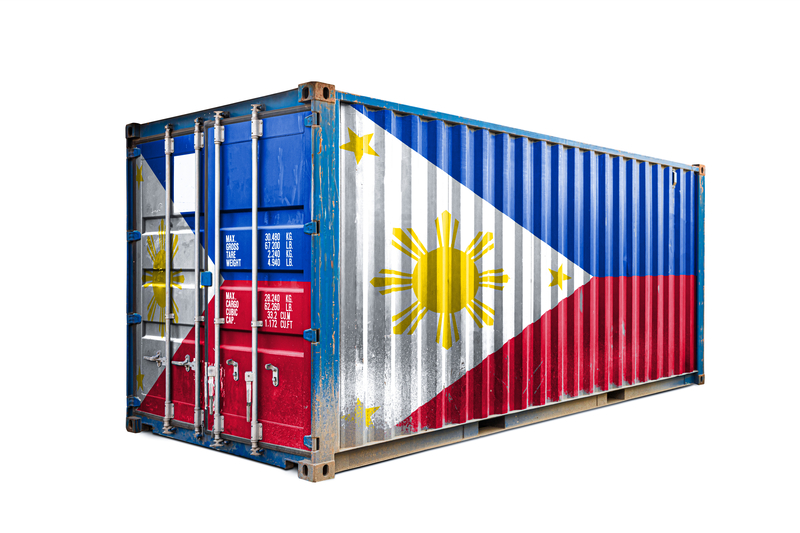
THE Philippines remained at the 12th spot out of 30 economies whose “readiness and capacity” to participate in the global trading system was gauged, but increased its score to 61.4 from last year’s 49.5.
According to the 2023 Hinrich-IMD Sustainable Trade Index (STI), while the country’s overall ranking did not change compared to last year’s, the latest STI report showed that the Philippines increased its rankings in all of the pillars being measured by the Index. Based on the report, the country improved its rankings in the Economic, Societal and Environmental pillars.
The country climbed three notches to the 16th spot in the Economic pillar for 2023, from only 19th in the STI last year. The Philippines got a score of 54.7 in this year’s report.
Under the Economic pillar, data from the report indicated that the country ranked first out of the 30 economies in terms of growth in labor force. In 2022, the Philippines only ranked 4th.
Owing to the country’s more aggressive investment promotion, data showed the ranking of the Philippines in the foreign direct investment (FDI) net inflows climbed a notch to 11th spot this year, from last year’s 12th.
The Philippines’s ranking in consumer price inflation, according to the 2023 STI report, also improved by seven notches to 12th from last year’s 19th.
As for trade costs, which is supported by the country’s logistics performance, corruption perceptions and rule of law, the Philippines improved its ranking by a notch to the 21st spot from last year’s 22nd. However, data indicated that among its sub-indicators, rule of law posted a three-notch decline to the 25th spot from last year’s 22nd.
In terms of Trade liberalization which covers the number of regional trade agreements, capital account liberalization and investment freedom as its sub-indicators, the country fell by one notch to the 17th spot from last year’s 16th, mainly because of its score in capital account liberalization.
Export indicators in this report showed that the Philippines improved its exports of goods and services as it climbed a spot to the 18th spot from last year’s 19th; while another indicator, the export concentration, showed the country improved its ranking as it climbed by five notches to 17th spot from last year’s 22nd ranking.
“We measure export diversification by evaluating an economy’s bilateral trade destinations and how heavily its exports are concentrated by sector,” the 2023 Hinrich-IMD STI report noted.
The Philippine ranking in the Societal pillar climbed to the 14th spot from last year’s 17th; however, data from the report indicated that the country’s performance in the area of political stability and absence of violence deteriorated to the 27th from last year’s 25th spot.
According to the 2023 STI, social factors matter in an economy’s capacity to trade internationally over the long term. “Economies are measured on the environment that encourages and supports the development of human capital, such as the extent of education and labor standards,” the study said.
The report also noted that this pillar captures factors that influence public support for trade expansion. These include income inequality, political stability, goods produced by forced and child labor, and the government response to human trafficking.
Under the Environmental pillar, which measures the “extent to which an economy’s trade supports sustainable resources,” the country’ ranking climbed to the 4th spot from last year’s 5th.
However, it’s worth highlighting that air pollution in the country has worsened: its ranking fell six notches to the 18th spot this year from last year’s 12th.
“While an economy’s capacity to participate in the global trading system is dependent on economic development, achieving sustainable trade requires prudent stewardship of natural resources and limiting externalities in an economy’s economic calculus to promote its overall environmental capital,” the report noted.
Hinrich-IMD said the STI measures 30 economies’ readiness and capacity to participate in the global trading system by analyzing 71 indicators grouped into three “pillars” that align with the long-term goals of economic growth, societal development, and environmental protection.
For her part, Kathryn Dioth, CEO of the Hinrich Foundation, pointed out that while global trade continues to expand in value, “that is mainly due to higher commodity prices.”
Dioth said, “The global trade system is experiencing fragmentation that threatens to erode the achievements of 70 years of globalization,” adding that “protectionist trade policies are being implemented under the guise of responding to the headwinds of post-pandemic inflation and geopolitical tensions.”
HInrich-IMD said of the 30 major trading economies studied by the STI 2023, the two that excelled in achieving such a balance were, for the second year in a row, New Zealand and the United Kingdom. Singapore jumped from 5th to 3rd place, and Japan dropped four positions, from 4th to 8th place.
Image credits: Vitalij Sova | Dreamstime.com
